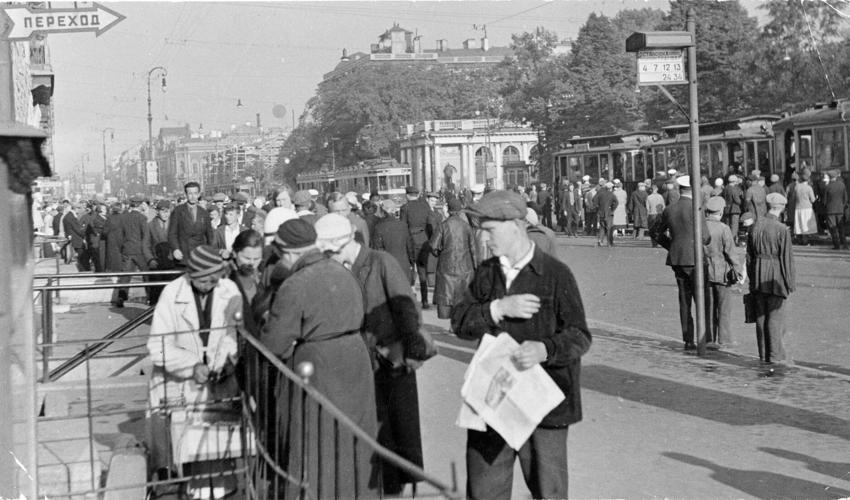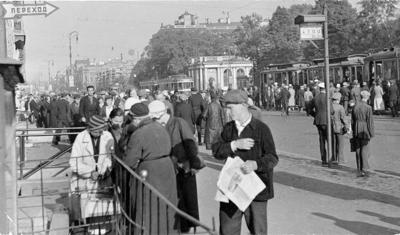
“33 Place Brugmann,” by Alice Austen, Grove Press, $43.50.
33 Place Brugmann
Alice Austen
Grove Press, 360 pages, $43.50
Recalling “Rashomon” by cleverly revealing different perspectives of the same events in the lives of fictional residents of a small Beaux Arts apartment building in Brussels, this novel is an elegant series of puzzle pieces that neatly fit together to reveal what happened to a community after Nazi occupation in 1939.
An architect, an art dealer, a colour-blind painter, an aspiring filmmaker, a busybody, a retired colonel, a nurse, a notary and a seamstress provide the believable, distinct first-person points of view, each as convincing as the next.
Under rationing and black-market corruption, it is a time when necessities like soap, food and medicine become luxuries. It is an age of cruelty, when by order of the German military, âwearing of the Yellow Star is obligatory for Jews six years of age and older.â
Yet, it is nevertheless a period of resistance and resilience, a courageous example of how to live in terrible times. As one of the characters rightly insists, âWhen this is over, and it will be over, we will remember everything.â
Poignant and stirring, “33 Place Brugmann” is an accomplished and artful debut that couldnât be more timely.

“The King’s Messenger,” by Susanna Kearsley, Simon & Schuster Canada, $25.99.
The Kingâs Messenger
Susanna Kearsley
Simon & Schuster Canada, 384 pages, $25.99
At the heart of this compelling story is the mysterious death of the 18-year-old heir to the British throne, Henry, Prince of Wales, who, if rumours are to be believed, had been poisoned. The titular messenger, Andrew Logan, is dispatched by the mercurial King James I to 1613 Scotland to seek and capture Sir David Moray, the princeâs trusted adviser and companion since his boyhood. Either truths will be revealed, or Moray will be sacrificed to slake the kingâs blood lust.
Accompanying Logan on his journey is ailing scrivener Laurence Westaway, tasked with recording what happens, and Westawayâs fiery, intelligent daughter Phoebe, who intends to care for her father along the way.
Flashback sequences burnish the genuine, loving paternal nature of Morayâs relationship with Henry, while Loganâs own secret of visionary âsecond sightâ adds lustre to the tale.
Deeply researched, this novel has been written with a verve that brings this long-ago time irresistibly to life.

“The Cafe With No Name,” by Robert Seethaler, Europa Editions, $38.95.
The Café With No Name
Robert Seethaler; translated by Katy Derbyshire
Europa Editions, 208 pages, $38.95
Itâs summer 1966 and war orphan Robert Simon, a brawny odd-job manual labourer, now 31, has the opportunity to change his life and lease a space to open a simple little cafĂ© in the vibrant working-class neighbourhood in Vienna, where for years he has rented a furnished room from an elderly widow.
The cafĂ© soon becomes a local hub, enthusiastically patronized by ordinary folk like âthe girls from the Shottenau yarn factory,â the butcher from across the street and eccentrics like a former bill collector who, after his fourth or fifth beer, pops out his glass eye and rolls it across the table to either shock or admiration.
The comedy and tragedy of life play out over the decade that kind-hearted, empathic Simon runs his café with his stalwart server Mila, both of them welcoming regulars and strangers alike to this community of found family.
Evocative and aching, Seethalerâs tale is as true as life itself.

“The Night Sparrow,” by Shelly Sanders, HarperCollins, $25.99.
The Night Sparrow
Shelly Sanders
HarperCollins, 368 pages, $25.99
When the Nazis invade Russia in 1941, gifted university language student Elena Bruskina and her family are sent to a Jewish ghetto in Minsk. Soon her brother and father are murdered, her sister hanged for helping soldiers, and her mother shot.
Motivated by grief and revenge, Elena joins Moscowâs Central Womenâs Sniper Training School with the hope of disrupting fascists any way she can in order to prevent more fellow Jews from being eliminated. After all, âExistence is resistance.â
As part of an all-female sniper platoon, Elena is determined to fight for her country, but discovers herself undone by ghastly memories and ashamed by her limited kill tally. When in spring 1945 she is injured and redeployed as a German translator to Berlin, she finds herself on a secret mission to identify Hitlerâs remains.
Meticulously researched and grounded in translated diaries by Russian women snipers in the Second World War, this gripping tale is told with compassion about a brutal time in history.


































To join the conversation set a first and last name in your user profile.
Sign in or register for free to join the Conversation